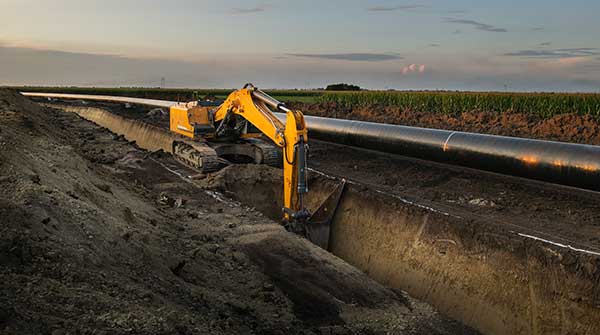By Ashley Stedman
and Elmira Aliakbari
The Fraser Institute
In yet another example of the federal government’s failure to get Indigenous consultation right, the Federal Court of Appeal recently ruled that six of 12 legal challenges to the Trans Mountain pipeline expansion can proceed.

Ashley
Stedman
The result?
Canada’s energy sector will continue to face transportation constraints, our international business and investment reputation will continue to decline – and there’s no end in sight.
Last year, the same Federal Court of Appeal quashed the original approval of the long-stalled Trans Mountain expansion, citing an insufficient environmental review and inadequate consultation with Indigenous communities.
Following that court decision, the government of Prime Minister Justin Trudeau (which in 2016 said it would seek “deeper consultations with Indigenous peoples”) appointed former Supreme Court justice Frank Iacobucci to oversee the consultation process to make sure the government got it “right.”

Elmira
Aliakbari
After announcing it had repaired the processes, the federal government approved the Trans Mountain expansion – for a second time – in June.
Despite all these efforts, the federal court disagreed and permitted six court cases against the pipeline expansion to proceed.
In its decision, the court said challenges could proceed on the issue of the adequacy of the consultation with Indigenous peoples. In a sign of the federal government’s incompetence on this issue, it chose not to provide evidence on how it carried out its legal duty to consult with Indigenous communities.
Once again, the government’s approach to Indigenous consultation has failed.
Conducting meaningful consultations with Indigenous communities is important. However, the federal government’s approach is riddled with uncertainty and excessive and unwarranted delays. There are other options but it seems the government is unwilling to stray from its current approach.
Perhaps the best way to improve on the status quo is to clarify the meaning of “duty to consult,” which lies at the heart of many impasses.
In the 2004 Haida Nation decision, the Supreme Court created the “duty to consult and accommodate” Indigenous groups on development projects (including pipelines) on their traditional territories. However, that right to be consulted was not clearly stated by the court or subsequently through federal legislation. To date, Parliament has passed no legislation to define what “duty to consult” actually means.
The confusion helps produce barriers and delays, such as the recent court decision.
Meanwhile, the fate of Canada’s energy sector hangs in the balance as oil producers are unable to get their product to market and are losing billions as a result. In fact, insufficient pipeline capacity cost Canada’s energy sector $20.6 billion – or one percent of the country’s economy – in revenues last year.
And the latest economic data show continued declines in business investment, highlighting the ongoing deterioration of Canada’s business and investment attractiveness.
And of course, legal challenges have contributed to Canada’s pipeline bottleneck. In light of the most ruling, there’s more uncertainty ahead.
The federal government is still struggling to get Indigenous consultation right. To get it right and end the delays and losses, the government, in collaboration with Indigenous groups, must introduce and pass legislation clarifying what meaningful consultation actually means.
Ashley Stedman and Elmira Aliakbari are analysts at the Fraser Institute.
Ashley and Elmira are Troy Media contributors. Why aren’t you?
The views, opinions and positions expressed by columnists and contributors are the author’s alone. They do not inherently or expressly reflect the views, opinions and/or positions of our publication.


